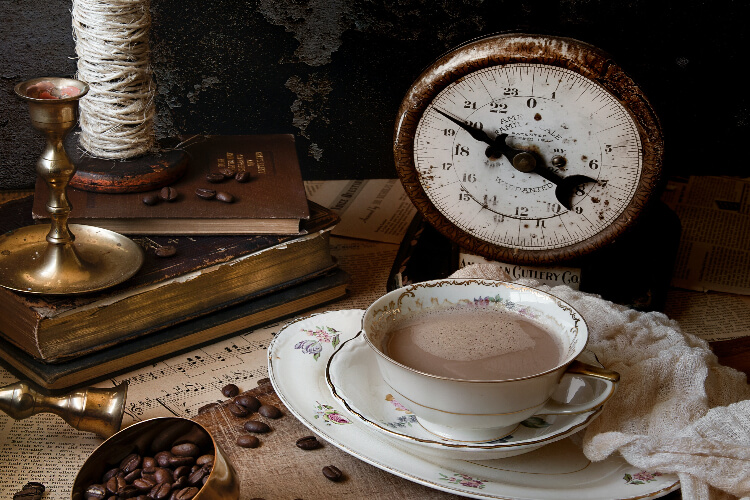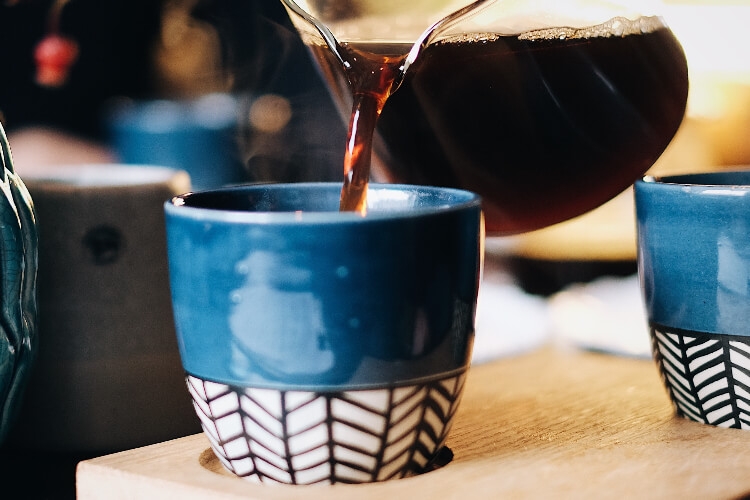
How Long Do Coffee Effects Last?
Coffee has a long history of use in many parts of the world. From its inception to the present day, it continues to be used as a way to stay alert and awake during long hours of work. Drinking coffee stimulates the release of adrenaline, which increases your heart rate and blood pressure. It also increases the sugar in your bloodstream, which can lead to an increased risk for diabetes.
Day in, day out, we all crave that morning cup of coffee – but how long does it take for the caffeine to start working?
What are the Effects of Drinking Coffee?
- It’s no secret that coffee has become one of the most popular beverages in the world. But many people don’t realize that coffee can have some powerful effects on your body.
- For one, coffee can give you a much-needed energy boost. This is because coffee contains caffeine, which is a natural stimulant.
- Caffeine works by blocking adenosine, a neurotransmitter that makes you feel tired. When adenosine is blocked, it allows other neurotransmitters, like dopamine and norepinephrine, to increase. This increase in neurotransmitters leads to increased alertness and energy.

- Not only does coffee give you an energy boost, it can also improve your physical performance. Studies have shown that coffee can improve your aerobic performance as well as your anaerobic performance. Coffee has also been shown to improve reaction time and cognitive function. So if you’re looking to get an edge on your competition, drinking coffee before you compete could be a good idea.
- Of course, like anything else, there can be too much of a good thing. Drinking too much coffee can lead to side effects such as jitters, anxiety, and insomnia. And
- Coffee is one of the most popular beverages in the world, and its effects on the human body are well-documented. But how long do those effects last?
- Caffeine is the main ingredient in coffee and has several well-known effects on the human body. Caffeine can promote mental clarity and alertness while also temporarily enhancing physical performance. Caffeine can also increase heart rate and blood pressure.
- These effects typically last for around two hours after drinking coffee. However, depending on their physiology, some people may feel the results for longer or shorter periods.
While drinking coffee has some benefits, it is essential to remember that it is also a diuretic, promoting dehydration if consumed in excess. Therefore, staying hydrated by drinking plenty of water throughout the day if you regularly drink coffee is necessary.
How Long Does it Take for Caffeine to Kick In?
Caffeine is a stimulant that can affect your body for up to six hours. The effects of caffeine depend on how much you consume and how quickly your body metabolizes it. Generally, it takes about 30 minutes for caffeine to start working in your system.
We all know that feeling of needing a coffee first thing in the morning or sometimes even during the afternoon lull. But have you ever wondered how long it actually takes for caffeine to start working its magic? It turns out the answer depends on a few factors.

When you drink coffee, the caffeine is absorbed into your bloodstream and then travels to your brain. Once it reaches your brain, it blocks adenosine, a neurotransmitter that makes you feel tired. This is what gives you that boost of energy and alertness.
- This procedure could take some time, depending on how much coffee you’re consuming, how strong it is, and whether you’ve eaten anything prior. Caffeine can take as little as 30 minutes on an empty stomach to start working. If you’ve just eaten a big meal, it could take up to an hour.
- So next time you need a pick-me-up, remember that it might take a little while for the caffeine to kick in. But once it does, you’ll feel wide awake and ready to take on the day!
What is the Difference Between an 8 Hours Wake Recharge and a 5-Hour Wake Recharge?
There are two main types of recharge for coffee: an hour wake recharge and an hour wake recharge. So, what’s the Difference?
- An hour’s wake recharge is when you drink coffee and immediately feel more awake. This is the most common type of coffee recharge and is ideal for when you need an energy boost. The effects of an hour’s wake recharge typically last for around four hours.
- An hour wake recharge is when you drink coffee and then take a nap. This coffee recharge type is ideal when you need a longer-lasting energy boost. The effects of an hour wake recharge typically last for around eight hours.
- So, which type of coffee recharge is right for you? If you need an immediate energy boost, an hour’s wake recharge is your best bet. If you need a longer-lasting energy boost, an hour wake recharge is your best bet.
The effects of coffee start within minutes and can last up to six hours. But what exactly happens during that time?
Coffee’s principal active ingredient is caffeine. Caffeine works by blocking a neurotransmitter called adenosine. Adenosine is responsible for making you feel tired, so when it’s blocked, you feel more awake.
- Caffeine also increases the release of other neurotransmitters like dopamine and norepinephrine. These neurotransmitters are associated with pleasure and alertness. That’s why you might feel more focused and energized after drinking coffee.
- The effects of coffee peak around 30-60 minutes after you drink it. But since caffeine has a half-life of 3-5 hours, your body is still processing it long after you finish your cup. So even if you don’t feel the full effects anymore, coffee can still affect your sleep if you drink it too close to bedtime.
If you’re looking for a quick pick-me-up, coffee is a great choice. Just be aware of how long its effects last so you can plan accordingly.
How Long Do Coffee’s Effects Last?
Caffeine’s effects are different for everyone. Factors like how much coffee you drink, your body size, and whether you’re used to caffeine play a role. Generally speaking, the effects of coffee peak around 60 minutes after you drink it. That means if you drink a cup of coffee at 8am, you’ll likely feel the effects most strongly at 9am. But those effects will start to wear off by 10 or 11am. So if you need an afternoon pick-me-up, you might be out of luck.
- We all know the feeling of downing a cup of coffee first thing in the morning and feeling its energizing effects almost immediately. But how long does this boost of energy actually last?
- Turns out, it depends on a few factors. The strength of the coffee, for starters. A cup from your local café is likely to have more caffeine than a home-brewed cup, which means it will also have a more pronounced effect on your body. The type of coffee bean used can also make a difference. Robusta beans, for example, contain more caffeine than Arabica beans.
- How you take your coffee can also affect how long its effects last. If you drink it black, the caffeine will hit your system quicker than if you add milk or cream, slowing down absorption. And if you are sensitive to caffeine, you’ll feel its effects for a shorter period than someone who doesn’t.
So how long can you expect that coffee buzz to last? Anywhere from 30 minutes to five hours, depending on the above factors. So next time you need an afternoon pick-me-up, remember: it might be time for another cup of coffee!
